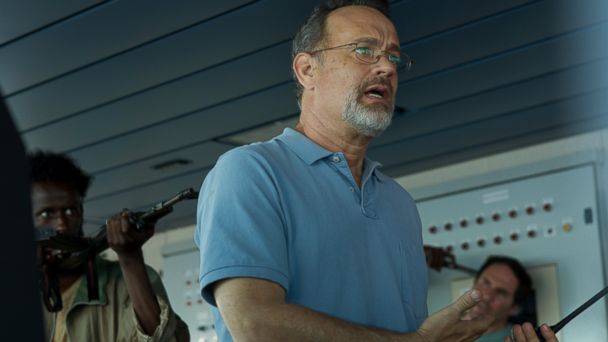'Captain Phillips' and The Surprising Truth About Pirate Attacks

Tom Hanks in a scene from the film "Captain Phillips," released in the United States on Friday, Oct. 11, 2013. (Hopper Stone/Sony-Columbia Pictures/AP Photo)
When pirates climb aboard the cargo ship helmed by Tom Hanks in the new thriller "Captain Phillips," audiences know they're in for a gripping piece of cinema.
What they might not realize is that the story of Captain Phillips is a common one among cargo ship crews worldwide, and that there have been more than 170 incidents involving pirates and 10 successful hijackings already this year, according to the International Chamber of Commerce's Commercial Crime Services report.
More than 50 hostages are currently being held by Somali pirates, according to the ICC.
The numbers are on track to be the lowest in recent years - there were 297 ships attacked in 2012 and 439 attacked in 2011 - but the threat of being overtaken by pirates has persisted, according to the ICC and the International Maritime Organization, which together with the Navy help oversee shipping safety in pirate-infested waters.
And ship crew members have few tools at their disposal to fend off attacks, according to guidelines published by IMO.
The suggestions include such things as staying near other ships in busy shipping corridors, staying undetected by only using navigational lights, using 24-hour lookouts and CCTV, triming parts of the ship with razor wire, spraying high pressure hoses over the to make it difficult to board, and trying to outrun the pirates by moving at maximum speeds.
But the IMO warns companies not to allow crews to bring firearms aboard or hire armed security, cautioning that doing so could escalate the situation by encouraging pirates to use more dangerous weapons and become more aggressive.
Shooting approaching pirates could land crew members in trouble with foreign governments and lead to liabilities for their employers, IMO says.
While international waters are still risky for shipping crews, i ncreased attention and prevention efforts by the U.S. Navy and other navies around the world have helped bring the number of attacks each year down, according to IMB.
Military teams can pre-emptively strike pirates on skiffs and target mother ships that carry teams of pirates.